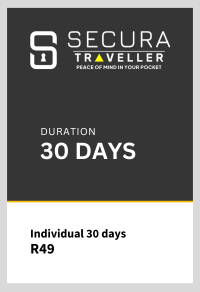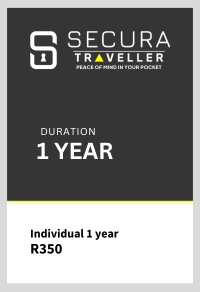Toolkits
Wheel Operator Legalities
SATSA developed a toolkit to assist operators, guides, and drivers with the full application process, what to keep in the vehicle, and what to do when stopped by a traffic official.
The POPI Act and How it Applies to Tourism
South Africa’s Protection of Personal Information Act (POPIA), which took effect on 1 July 2020, requires all businesses which process personal information of both natural persons and juristic persons to comply with the Act’s eight conditions for lawful processing, by 1 July 2021.
SATSA in collaboration with industry experts created and sourced the relevant resources and guides to better assist you with ‘getting’ POPI compliant.
SATSA resources:
SATSA’s Privacy Toolkit - Webinar: Unpacking the POPI Act for Tourism Business. To view the recording click here and to access the FAQS, click here.For additional information and resources, please click on the links below:
- POPI: Why, how and when to apply for Prior Authorisation
- POPI: The importance of a COC
- POPI: Why you need an ‘Information Officer’
- Tourism businesses face steep fines for POPI non-compliance
- How ready is the Tourism Industry for travel and POPI?
- POPI Act comes into effect in July – what does this mean for tourism?
SATSA Captive Wildlife Toolkit
Captive wildlife attractions and interactions remain a complex, contentious and emotionally charged issue.
In response, SATSA embarked on comprehensive research which resulted in a locally-born toolkit, consisting of a guide and an interactive decision tree tool. This allows tourism bodies, tour operators, and tourists to make informed decisions regarding animal interaction operations.
Focussing on products in the tourism value chain that offer animal interactions and considering factors such as the reasons for captivity, the source of animals, their use while in captivity, and their future destination, this tool goes beyond welfare concerns to address the full lifecycle of the animal interactions industry.
The study conveys findings and recommendations around:
- Performing animals (all types of animals, including elephants, predators, primates, cetaceans, birds, reptiles etc. trained to perform in a public show or display)
- Tactile interactions with infant wild animals (e.g., cub petting)
- Tactile interactions with predators or cetaceans (any interaction with land predators or aquatic mammals)
- Walking with predators or elephants
- Riding of animals (including sitting on elephants, ostriches etc.)
SATSA promotes the adoption and use of the toolkit across the tourism industry. However, it is important to note that the association does not endorse assessment outcomes by any organisation or private initiative and does not play any role in the assessment process.
To download the Toolkit, please click on the links below:
Webinars
VAT & Inbound Tourism
Hosted by SATSA on 4 April 2024, our VAT webinar was a vibrant exchange of knowledge, strategies, and experiences that spotlighted the intricacies of VAT within the Inbound Tourism landscape.
Click here to view the webinar.
Creating the Future with AI
AI can be a powerful tool to propel your business forward, especially in the tourism industry.
On 16 Oct 2023, Natalia Rosa showcased current and emerging use cases of AI in travel, explored effective communication with AI, analysed popular AI tools for productivity, and discussed strategies to stay ahead of the game.
To access the resources, please click on the links below:
Destination Knowledge
Western Cape
Cederberg Adventure Fam – April 2024
Hosted in partnership with Wesgro, we deep-dived into the rugged and remote Cederberg, Western Cape between 16 and 19 April 2024. Click here for a quick overview video.
St Helena Island
Coming Soon!
Golf Tourism
Library
Tourism Safety Summit
An industry-wide Tourism Safety Summit was held on 16 November 2023.
The following resources are available to the industry:
- Tourism Safety Strategy and Actions Overview
- Recording of the Summit
- Call for Tourism Safety Volunteers
Public Sector Tourism Strategies & Plans
National Documents:
Constitution of the Republic of South Africa
- The supreme law of South Africa that outlines the country's fundamental principles, values, and rights
- Adopted in 1996
- Last amended 27 July 2023 (Eighteenth Amendment) to recognise South African Sign Language as one of the official languages of the Republic
National Development Plan
- A long-term plan that outlines the vision and goals for South Africa's development over the next few decades
- Adopted in 2012 and active until 2030
Economic Recovery and Reconstruction Plan
- A government-led initiative aimed at rebuilding the country's economy, which has been negatively impacted by the COVID-19 pandemic and other economic challenges
- The plan focuses on several key areas, including infrastructure development, job creation, and support for small and medium-sized businesses
Re-Imagining Industrial Strategy
- A policy framework that aims to transform the country's industrial base and promote inclusive growth through increased investment in key sectors, such as manufacturing, agriculture, and services.
Tourism Specific Documents:
Tourism White Paper of 1996
- A policy document to guide the development and growth of the tourism industry
- Definition: A white paper in South Africa is a broad statement of government policy that is drafted by the relevant department or a task team designated by the minister of that department1. A white paper is usually preceded by a green paper, which is a more preliminary discussion document. A white paper aims to chart a new path for social welfare and national social development in line with the United Nations World Summit for Social Development
- The Tourism White Paper, which was promulgated in 1996, has not undergone any review since then. As a result, it predates several government frameworks, including the National Development Plan (NDP)
Tourism Green Paper
- A policy document that outlines the government's vision and strategy for sustainable tourism development in the country
- Definition: A Green Paper is a government policy discussion paper that details specific issues and points out possible courses of action in terms of policy and legislation. It is a precursor for a White Paper. The Green Paper is drafted by the Ministry or department to show the way that it is thinking about a particular policy. The Green Paper is intended to stimulate broad discussion to inform a comprehensive long-term policy statement
- The Department of Tourism embarked on a process to review the Tourism White Paper and a Review Panel was appointed in October 2020 by the Minister of Tourism
- The Green paper was gazetted on 1 September 2023 and open for public comment until 31 October 2023
- Legislation that aims to promote tourism in South Africa by establishing a legal framework for sustainable tourism development
- Preceded by the Tourism Act 1993 and the Tourism Amendment Act 2000
National Tourism Sector Strategy (NTSS)
- A ten-year plan to guide the development and growth of the tourism sector in the country
- Effective from 2016 to 2026
Tourism Sector Recovery Plan (TSRP)
- Adopted in 2020, launched in April 2021, and in effect until 31 March 2024, the TSRP was a sector plan developed to mitigate the impact of COVID-19 on the travel and tourism sector
- It was a product of collaboration with key stakeholders from government, sector, and other social partners and contained three strategic pillars:
- Protect and Rejuvenate Supply
- Re-ignite Demand
- Strengthening Enabling Capacity
- It was aligned with the Economic Recovery and Reconstruction Plan (ERRP) and had seven strategic interventions assigned to various implementing authorities/accountabilities with specific actions and timeframes
- Although now replaced by the Tourism Masterplan (see below), it is envisaged that TSRP priorities will be fully achieved by the end of the implementation timeframe being 31 March 2024
- Important Note: The Tourism Sector Recovery Plan has been converted into the Tourism Sector Masterplan to extend the interventions’ timeframes
- The Masterplan, in effect until 31 March 2026, aims to stimulate the industry, labour, and government to collectively act on identified/shared goals to deliver tourism economic activity and jobs for the benefit of all South Africans
- It was developed by the Department of Tourism using strategic elements, sections, and best practices from both the National Tourism Sector Strategy (NTSS) and South Africa's Re-Imagining Industrial Strategy. The vision, mission, guiding principles, and values of the NTSS, which are in effect until 31 March 2026, are still relevant and have thus been incorporated into the Masterplan
- The Draft Masterplan was presented to the DGs’ ESIEID Cluster on 17 August 2023, inputs from the Presidency were incorporated and a preliminary sign-off/certificate was issued to proceed with a presentation to Parliament on 20 September 2023
- The Masterplan was gazetted on 13 October 2023 and is not open for public comment
- Implementation, monitoring, and reporting will be done as follows:
Tourism Sector Master Plan Executive Oversight Committee (EOC), which is the highest decision-making body, chaired by the Minister of Tourism
Tourism Sector Master Plan Steering Committee (Steerco), to provide oversight over the development and implementation of the Masterplan, co-chaired by the DG of Tourism and CEO of the TBCSA
Working and Industry Reference Groups to develop and implement specific aspects of the Masterplan. The existing NTSS Work Streams, aligned to the pillars/focus areas, will undertake responsibilities of the Working and Industry Reference Groups structure, chaired by the respective DDGs of Tourism. These include 1) Effective Marketing, 2) Ease of Access, 3) Visitor Experience, 4) Destination Management, and 5) Broad-based Benefits.
























